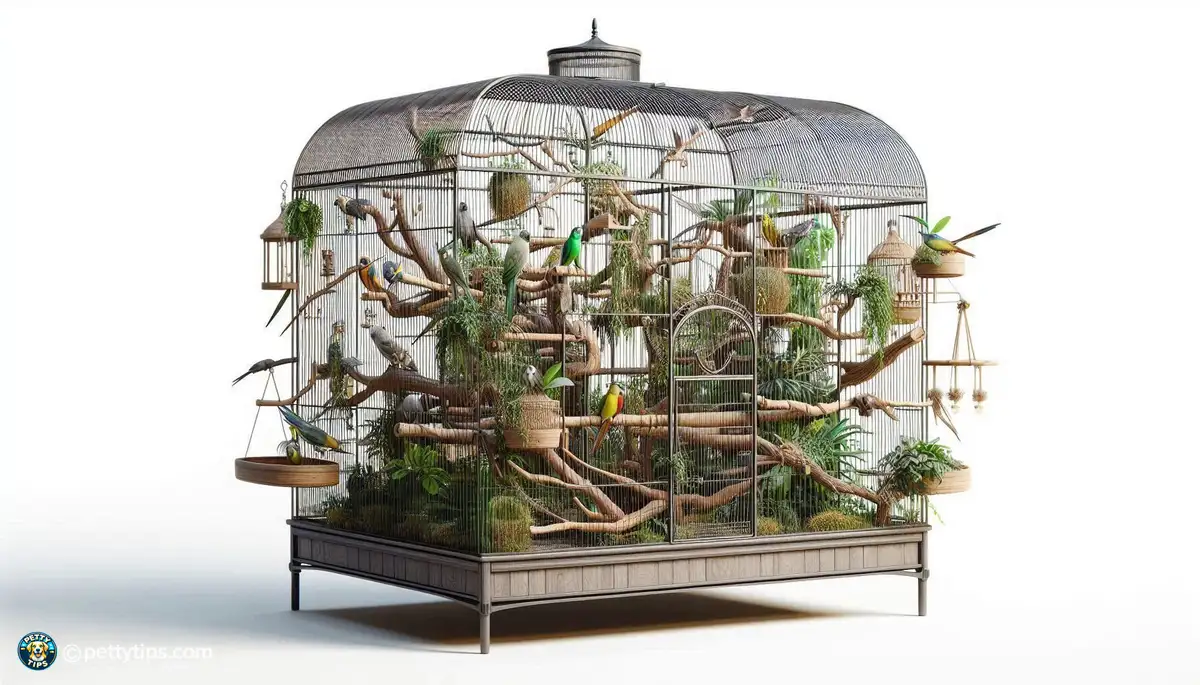Choosing the Right Cage for Your Birds Well-being

Creating a Safe and Comfortable Environment
When it comes to selecting a cage for your feathered friend, there are several factors to consider. First and foremost is the safety and comfort of your bird. Birds spend the majority of their time in their cages, so it's crucial to choose one that provides ample space for movement and activities. A cage that is too small can lead to stress, boredom, and even health issues such as obesity and muscle atrophy. Additionally, a poorly constructed cage can pose hazards such as sharp edges or toxic materials.
Considering Your Bird's Species and Size
Each bird species has its own unique requirements when it comes to cage size and design. For example, smaller birds like finches and canaries may require smaller cages with narrow bar spacing to prevent escape, while larger birds like macaws and cockatoos need larger cages with thicker bars for stability. Consider the wingspan and activity level of your bird when choosing the appropriate cage size. Birds that enjoy flying and climbing will benefit from a larger cage with plenty of horizontal and vertical space to move around.
Ensuring Proper Ventilation and Lighting
A well-ventilated cage is essential for your bird's respiratory health. Choose a cage with adequate ventilation to prevent the buildup of harmful fumes from bird waste and cleaning products. Additionally, natural light is crucial for your bird's well-being, so opt for a cage with open sides or large windows to allow plenty of sunlight to enter. If natural light is limited, consider supplementing with full-spectrum lighting to mimic the benefits of sunlight indoors.
Selecting the Right Material and Construction
Cage material and construction play a significant role in your bird's safety and comfort. Avoid cages made from toxic materials such as lead or zinc, as these can be harmful if ingested. Stainless steel and powder-coated cages are durable and easy to clean, making them ideal choices for long-term use. Pay attention to the quality of construction, ensuring that the bars are securely welded and there are no sharp edges or gaps where your bird could get trapped.
Practical Considerations for Cage Placement
Choosing the Ideal Location in Your Home
The location of your bird's cage within your home can impact their overall well-being. Birds are social creatures that thrive on interaction with their human companions, so place the cage in a central area where your bird can observe and participate in household activities. However, avoid placing the cage in drafty or high-traffic areas, as this can cause stress and anxiety for your bird. Additionally, keep the cage away from windows and doors to prevent exposure to extreme temperatures and drafts.
Providing a Sense of Security and Privacy
While birds enjoy social interaction, they also need a quiet and secure space to retreat to when they feel overwhelmed or stressed. Choose a cage location that offers a balance of stimulation and privacy, such as a corner of the room or a secluded area away from noisy appliances or pets. Provide your bird with plenty of perches, toys, and hiding spots within the cage to create a comfortable and enriching environment where they can feel safe and secure.
Minimizing Exposure to Harmful Elements
Birds are highly sensitive to changes in their environment, so it's essential to minimize their exposure to potentially harmful elements. Keep the cage away from sources of smoke, fumes, and chemicals, such as kitchens, fireplaces, and household cleaners. Additionally, avoid placing the cage near air vents or heating/cooling systems that could cause temperature fluctuations or drafts. By carefully selecting the location of your bird's cage, you can help ensure their safety and well-being.
Maintaining a Clean and Hygienic Environment
Regular cleaning and maintenance are essential for keeping your bird's cage clean and hygienic. Remove droppings, uneaten food, and soiled bedding daily to prevent the buildup of bacteria and odors. Wash the cage and accessories with a mild bird-safe detergent and rinse thoroughly with water. Replace any worn or damaged parts, such as perches or toys, to prevent injury or illness. By maintaining a clean and hygienic environment, you can help prevent the spread of disease and ensure your bird's well-being.
Conclusion
Choosing the right cage for your bird is a crucial decision that can impact their overall well-being and quality of life. By considering factors such as size, material, construction, and placement, you can create a safe and comfortable environment where your feathered friend can thrive. Remember to provide plenty of opportunities for exercise, socialization, and mental stimulation to keep your bird happy and healthy for years to come. With the right cage and proper care, you can ensure that your bird lives a fulfilling and enriching life as a cherished member of your family.
